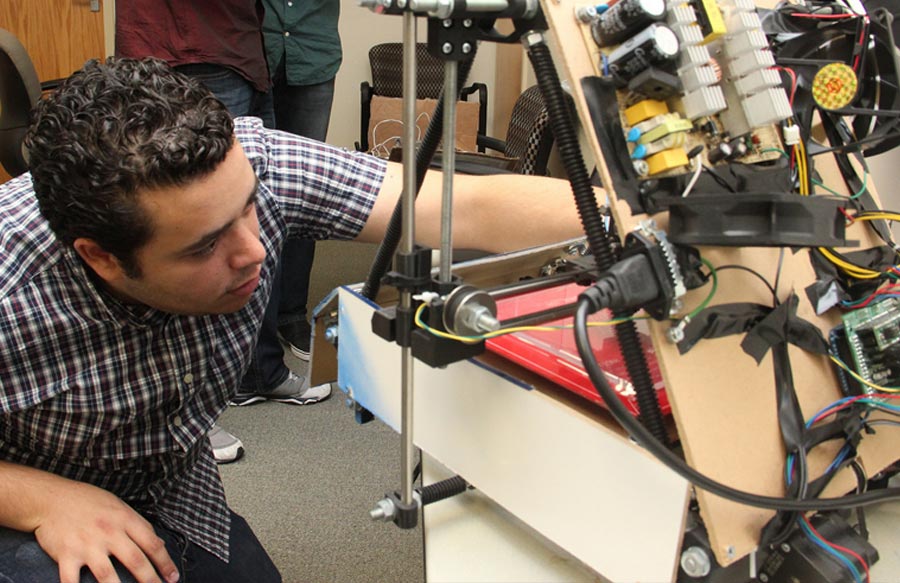Program Educational Objectives
Program educational objectives describe what graduates are expected to attain within a few years after graduation and are based on the needs of the program's constituencies. Graduates from the Bachelor of Science in Electrical Engineering program will:
- Demonstrate growth in careers related to Electrical Engineering and become productive engineers
- Advance through continuous education and professional development
- Benefit society though professional, community, and public service
Student Learning Outcomes
Graduates from the Bachelor of Science in Electrical Engineering program will acquire knowledge, skills, and professionalism as they progress through the program. Upon graduation, our students meet the following student learning outcomes:
- an ability to identify, formulate, and solve complex engineering problems by applying principles of engineering, science, and mathematics
- an ability to apply engineering design to produce solutions that meet specified needs with consideration of public health, safety, and welfare, as well as global, cultural, social, environmental, and economic factors
- an ability to communicate effectively with a range of audiences
- an ability to recognize ethical and professional responsibilities in engineering situations and make informed judgments, which must consider the impact of engineering solutions in global, economic, environmental, and societal contexts
- an ability to function effectively on a team whose members together provide leadership, create a collaborative and inclusive environment, establish goals, plan tasks, and meet objectives
- an ability to develop and conduct appropriate experimentation, analyze and interpret data, and use engineering judgment to draw conclusions
- an ability to acquire and apply new knowledge as needed, using appropriate learning strategies.
Accreditation
The Bachelor of Science in Electrical Engineering program is accredited by the Engineering Accreditation Commission of ABET, https://www.abet.org, under the General Criteria and the Program Criteria for Electrical, Computer, Communications, Telecommunication(s), and Similarly Named Engineering Programs.



